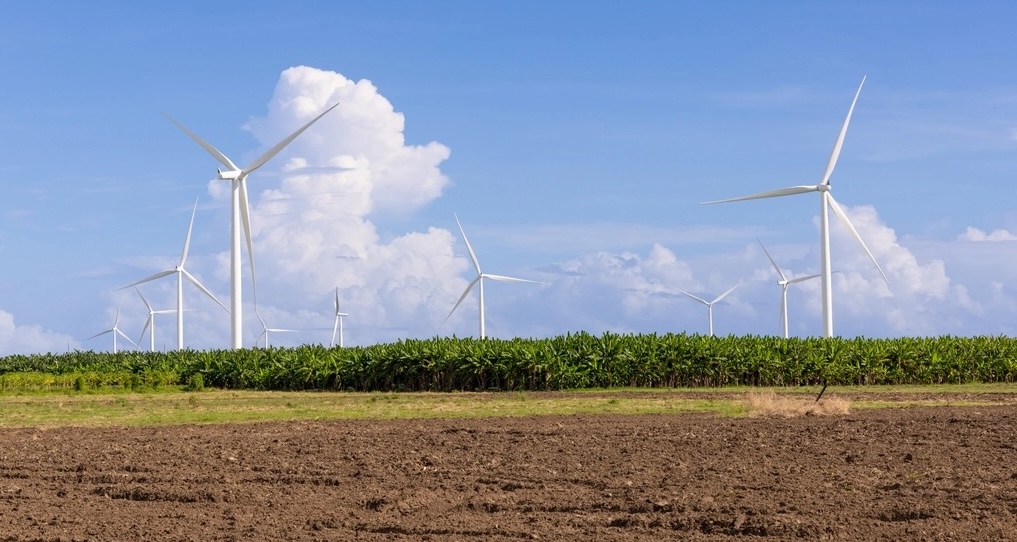
Sign up for daily news updates from CleanTechnica on email. Or follow us on Google News!
Last Updated on: 23rd February 2025, 11:19 pm
If you felt a tremor last week, that was the latest development in the growing field of climate litigation. A federal magistrate judge has ruled that a first-of-its-kind lawsuit against ExxonMobil, Shell, and other leading oil producers can proceed to the discovery stage, opening a window into a decades-old curtain of industry efforts to keep the public in the dark about climate change and clean energy alternatives.
A Climate Litigation Victory For Puerto Rico
The lawsuit was brought under RICO (the 1970 Racketeer Influenced and Corrupt Organizations Act) and other laws by the leading corporate victims’ rights litigator Milberg Coleman Bryson Phillips Grossman on behalf of 37 Puerto Rican municipalities.
“This decision marks a monumental leap forward in climate litigation, placing some of the world’s largest fossil fuel companies on track to face trial for their role in deliberately misleading the public about climate change while suppressing clean energy alternatives,” Milberg stated in a press release describing the decision.
“The lawsuit…alleges that ExxonMobil, Shell, Chevron, BP, and other major oil producers engaged in a coordinated, decades-long deception campaign to conceal the true dangers of fossil fuel consumption,” Milberg added.
Noting that the concealment effort involved ” dark money funding and industry-backed disinformation campaigns,” Milberg explained that the companies named in the lawsuit “manipulated public perception, influenced policy, and delayed the transition to clean energy—despite possessing particularized knowledge of climate change’s catastrophic effects.”
Milberg Senior Partner Marc Grossman anticipates that the discovery process will trace the money trail. “The fossil fuel industry became the architects of choice, designing a future that forestalled clean energy alternatives and deepened our dependence on their products—all while knowing the devastating consequences,” he said.
RICO And Climate Litigation
The legal ruling was not a complete victory for Milberg and its clients, as the judge dismissed claims related to state laws. Nevertheless, last week’s ruling is a significant step in the ongoing legal effort to trace the role of fossil energy stakeholders in the campaign against climate action. In the Puerto Rico case, Milberg is seeking compensation for his clients related to damage in 2017, when hurricanes Irma and Maria struck the island.
As Milberg explains, some climate litigation has been slowed or blocked by the Clean Air Act and other federal laws. To help move the Puerto Rico case along, Milberg called in support from consumer fraud, racketeering, antitrust, products liability, nuisance, and failure to warn laws.
“The case is supported by research from leading universities, professors, and organizations in the field of climate science and sets a new standard for these claims,” Milberg also notes.
The strategy of deploying RICO against the fossil energy industry also surfaced in 2023, when lawyers for the city of Hoboken, New Jersey alleged that hiding the truth about climate change and fossil energy violated the state’s consumer protections laws. A similar strategy has been pursued against tobacco and pharmaceutical companies, among others.
Milberg filed its lawsuit in November of 2022, describing it as the first to seek compensation from both oil and coal companies, for “marketing and selling carbon-based products that they intentionally misrepresented to the public.”
The firm alleges that since the 1970’s, the defendants had enough evidence to conclude that the impacts of climate change would threaten their own assets. “But instead of transparency, the defendants engaged in a pseudo-scientific campaign to sow doubt about climate change and protect their monopoly over fossil fuel production,” Milberg explained.
Next Steps After The Hurricanes
The Milberg win is a huge step for climate litigation and for Puerto Rico. In 2019, Puerto Rico formally adopted a renewable energy goal of 100% by 2050.
Last April the US Department of Energy issued the results of a two-year, FEMA-funded study confirming that the 100% renewable energy goal is feasible. In a press release announcing thestudy, the Energy Department also referred, albeit obliquely, to the impacts of climate change.
“Frequent and extreme weather events. Record-setting power outages. High energy costs. These are some of the galvanizing forces that unite the people of Puerto Rico in their commitment to achieve a more resilient, reliable, affordable energy system,” the Energy Department wrote.
Community engagement and a partnership with the Hispanic Federation in Puerto Rico were central features of the study, which concluded that enough renewable energy resources are available to meet electricity demand on the island now, and onwards to 2050.
The bottleneck is the amount of money needed to harvest that energy and upgrade the Puerto Rico grid. “There is an immediate need to increase capacity to accommodate renewables, and the transmission and distribution grid infrastructure needs system upgrades,” notes the Energy Department’s National Renewable Energy Laboratory, which spearheaded the study.
“Utility-scale solar generation is a necessity to ensure demand can be met reliably, even if every suitable rooftop also has solar generation,” NREL explained. The lab also advised that more energy storage and renewable energy generation facilities need to be located throughout the island.
More Climate Litigation To Come…
The Biden administration laid plans to arrange funding in support of the 100% renewable energy goal. With Trump now at the helm, those plans are up in the air.
On February 10, PBS News reported that the Republican Governor of Puerto Rico, Jenniffer González, aims to ditch interim steps calling for 40% renewables this year and 60% by 2040, citing the prospect of losing federal funds.
Meanwhile, a new torrent of climate litigation is already bubbling up stateside. Trump has already upended the offshore wind plans of several East Coast states, and lawsuits are sure to follow.
Climate litigation is also a two-way street. In particular, New York State’s new “climate superfund” law has already sparked pushback. Governor Kathy Hochul signed the law into being and it didn’t take long for fossil energy firms and their allies to clap back. On February 6, 22 states and four other stakeholder filed a lawsuit seeking to quash the effort.
Hold on to your hats…
*After just a few weeks in office, Trump has already turned the US into a Soviet-style satellite state of Russia, up to and including the protection of fossil energy interests. Agree? Disagree? Share your thoughts in the comment thread or, better yet, call your representatives in Congress.
Photo: Climate litigation activity is heating up in the US, including a new lawsuit against coal and oil companies that has just moved closer to the discovery stage (courtesy of US DOE).
Chip in a few dollars a month to help support independent cleantech coverage that helps to accelerate the cleantech revolution!
Have a tip for CleanTechnica? Want to advertise? Want to suggest a guest for our CleanTech Talk podcast? Contact us here.
Sign up for our daily newsletter for 15 new cleantech stories a day. Or sign up for our weekly one if daily is too frequent.
CleanTechnica uses affiliate links. See our policy here.
CleanTechnica’s Comment Policy

